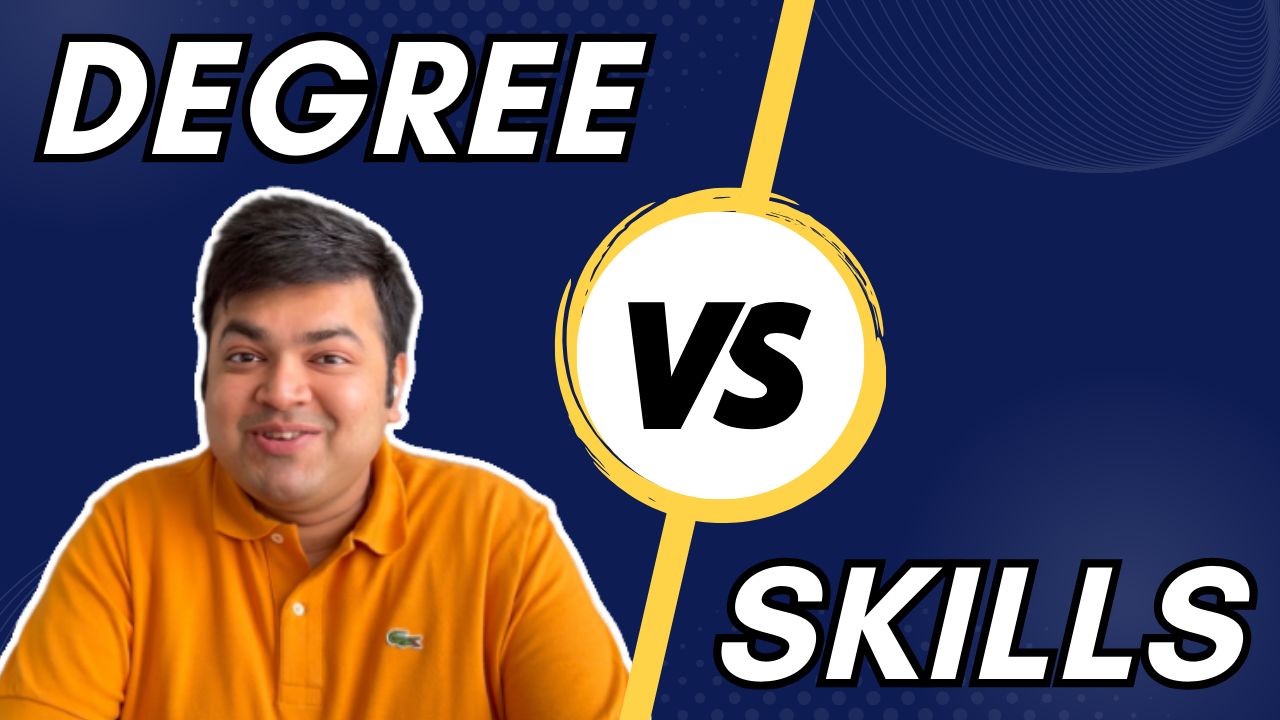Aswini Bajaj holds an impressive array of qualifications, including CA, CS, CFA, FRM, CAIA, CIPM, CFP, RV,
CCRA, CIIB, CIRA, and AIM. He has taught at over 140+ institutions, including more than 30 IIMs, IITs, IAS
officers, corporates, and founders. Also, consulting from early-age startups to Nifty50 giants has been a
part of the world record for teaching personal finance to the most number of people in a single day.
Recently, he surpassed 100k subscribers on YouTube teaching finance and now also hosting CXOs across
Fund Houses. Balancing such a diverse portfolio boils down to one core principle for Bajaj: discipline.
With this kind of introduction, we wanted to grab his thoughts on multiple topics. Aswini Bajaj believes
in the importance of continuous learning through work experiences.
Views on De-influencing
In the digital age, discerning the content you consume is extremely important. He advises students to be
selective about their influences and in his TEDx Talk as well he had covered this as we know “You are the
sum total of the books you read, the people you surround yourself with, and the digital content you
consume”. He says to follow people who add expertise, experience & ethics and those who say what you
should hear and not what you want to hear.


Views on Degree Versus Skills:
There is an ongoing debate about the importance of degrees versus skills. Aswini offers a nuanced
perspective: “Exams and degrees provide a structured way to study seriously and thoroughly. He
questions that without your exams would you study with the same level of discipline practice with
diligence?” Generally, in this debate people think that degrees and skills and mutually exclusive whereas
they should be complimenting each other. He notes that outliers like Steve Jobs, who took calligraphy
classes beyond his course outline where people extrapolate the college dropouts, but tend to overlook
the unique actions and unconventional learning experiences, for their remarkable success.
Views on Entrepreneurship
For those joining a family business, it’s essential to discuss the roles and skills required within the family.
Different roles necessitate different educational backgrounds. For example, a CA might be ideal for
handling accounting and taxation, while a CFA is better suited for finance and decision-making, and an
MBA is advantageous for management and marketing roles. Sometimes, multiple skill sets require
multiple qualifications. However, there’s no one-size-fits-all approach. The key is to understand the
specific skills needed for the role and pursue your education accordingly. Business success depends more
on the right skills than on specific degrees.
Aswini also discusses the right and wrong reasons to become an entrepreneur. The right reasons include
having a unique product, patent, or trademark, leveraging your corporate experience to add value in a
similar space, or capitalizing on a specialized skill set into a viable business. On the other hand, the
wrong reasons include choosing entrepreneurship because you find a 9-5 job dull or believing it will
always bring more money. Entrepreneurship is challenging and often less financially rewarding than a
stable job, especially in the initial years. Another misconception is thinking you’ll have more freedom. In
reality, entrepreneurs have to manage everything and often face more constraints than employees.
Views on Productivity and Focus
Achieving long-term goals requires a structured and disciplined approach. Start by setting clear, specific
goals and break them down into smaller, manageable tasks. Establish a timeline with deadlines to keep
yourself on track. Regularly review and adjust your plan to stay flexible and adapt to any changes or
setbacks. Always keep your end goal in sight to maintain focus and drive.
He draws inspiration from Bhagavad Gita one of which is Verse 2, Chapter 48 – “Yogastha Kuru Karmani,” which means performing actions with an unwavering mind, rooted in inner stillness. This promotes mindfulness and helps
maintain focus and clarity amidst challenges, fostering a calm and productive environment.
Time management is all about maintaining flow and minimizing interruptions. Whether studying or
working, avoid frequent breaks, as they significantly reduce productivity. Instead, focus on uninterrupted
study sessions or work periods. During his CA preparation, he prioritized attendance and completed his
syllabus early, giving himself more time for focused study closer to exams. This approach can be applied
to any task—start early, stay consistent, and build in buffer time for unforeseen events. Be selfish with
your time. Avoid unnecessary social distractions and stay focused on your goals. Balance leisure and
study, but ensure productivity is not compromised.
While he used to write down his goals in a very structured manner for himself, he ended up publishing a journal for this – Invest in Yourself Journal.
In conclusion, Aswini Bajaj’s advices from students to aspiring entrepreneurs to stay disciplined and
structured in their approach. Whether pursuing a degree, entering a family business, or starting a new
venture, focus on acquiring and applying the right skills. Be mindful of the content you consume and
choose your influences wisely. Success is a journey that requires consistent effort, dedication, and a clear
vision. Stay motivated, keep learning, and always aim to add real value in whatever you do.



